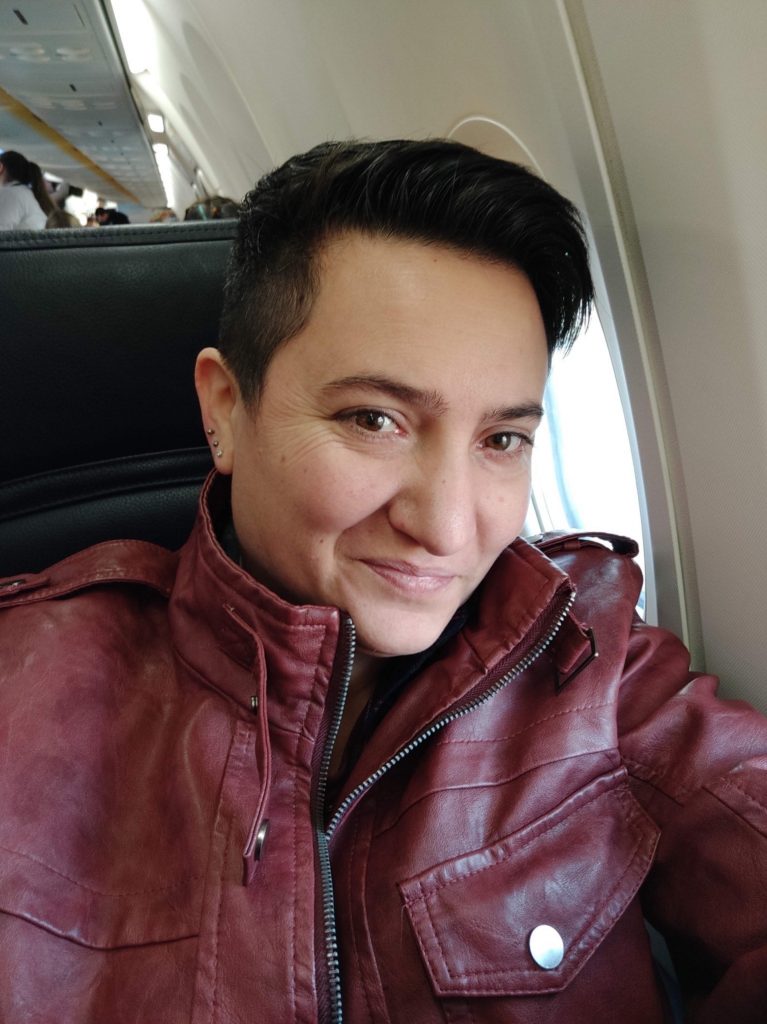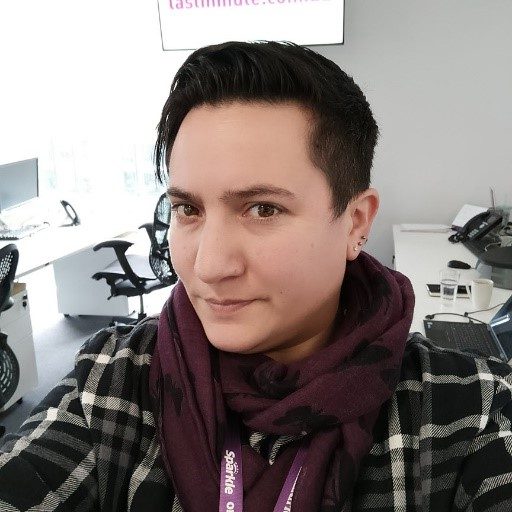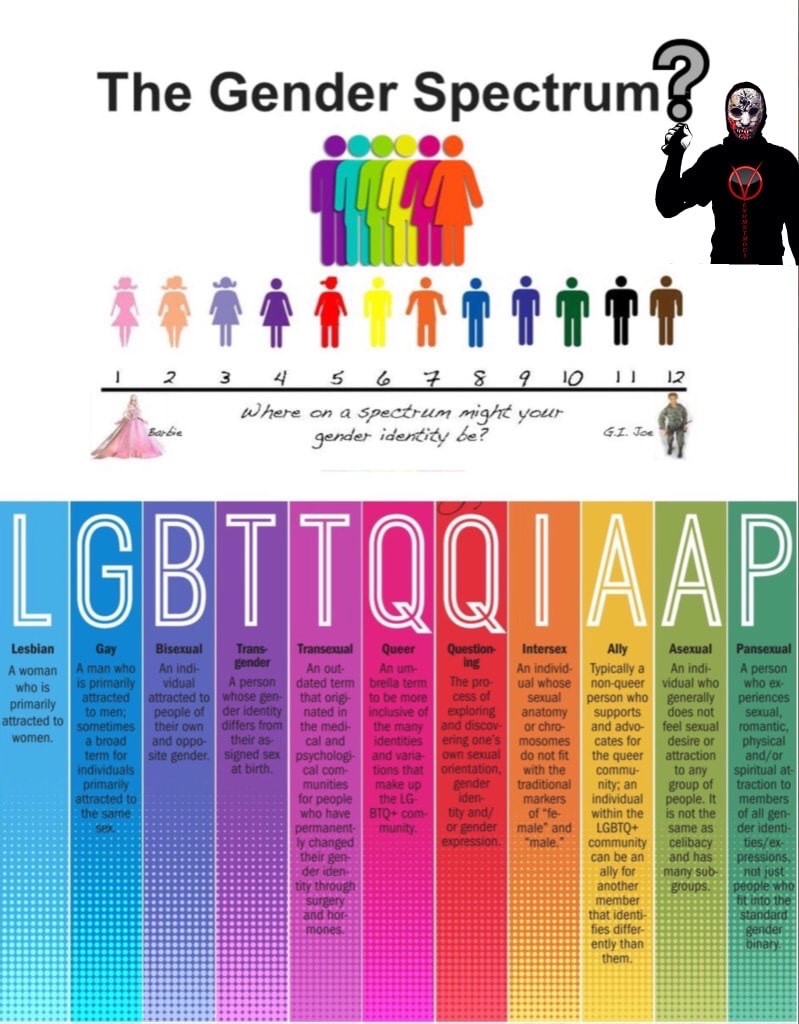Jobs
Search Expedia Group Jobs
Letter to our allies and ones in the making…
Marjorie Kuss | Program Manager, Client Technical Services in Manchester

Hi everyone! My name is Marjorie, but please call me Majojo. Why do I have a chosen name you ask? Because I am transgender.
I have been part of the amazing Expedia family for now 7 and a half years, and still loving it.
In addition to my role at Expedia Group, I also am an active lead member of our LGBTQIA employee group, and outside of work, gift a lot of my free time to what I like to call “positive activism”.
This can take many forms, from working as a trustee of registered charities, to singing on stage at LGBTQIA events, or even volunteering with friendly organisations.
For instance, I sing in a lot of Open Mic LGBTQIA events, as well as being the Commercial Manager of Trans Radio UK, which is a non-profit organisation, and currently still the only radio station in the world that is entirely run by transgender volunteers, from the owner and founder, to the DJs, the brand ambassadors and myself. And what more: it is free to listen to, and broadcasts in over 100 countries in the world. What better channel to spread positivity and awareness?
The sole aim of this, whether in my role at Expedia or outside, is to shine a bright light on the success stories from our community, and promote awareness and education, all in a positive and constructive manner.

Personally, I class myself as Gender Non-Binary Transmasculine. And I know that still today there is a big uncertainty or confusion about what this means. So, let me make it simple:
A trans person is anyone who does not identify fully, or at all times as the gender they were assigned at birth. Very simple right?
Well, a non-binary identity is even simpler, and it does what it says on the tin: binaries in gender are male and female, a non-binary person doesn’t identify fully as either of the two binary ends of the gender spectrum.
Now as you are reading this, please do me a small favour, whether you are at home, at the office, outside, just for one short instant, look up, and scan the people around you. Did you know that, especially if you are not at home right now, there is a very big chance that at least one of these people is trans?
- “No WAY!” I hear you say…
- “None of these people look trans…”
- “They can’t be…”
Now read back the definition of what “trans” means… What does a trans person “look” like? What about those who have not yet come out and suffer in silence? What about non-binary or gender fluid people, for whom the way they look is in no way tied to the gender they identify with?
This is where awareness, and being an ally, starts. Making assumptions about how someone feels, or identify, being one of the most common mistakes that can inflict great hurt to the person you are speaking to.
So today, on Transgender Day of Visibility, and all year round, I would like to ask you all for one very small favour, which is within reach for all of you: Be approachable, reach out to people, and never assume someone’s gender.
This very simple gesture can make a tremendous difference in someone’s life, show you care, and show respect. Don’t ask intrusive or intimate questions, simply reach out and respect people for who they are.
If you would like to know more about gender identities, and what these mean in everyday life, why not check out this friendly talk show I did with Trans Radio UK.
Thank you for reading this, this alone is a first act of ally-ship! Happy Transgender Day of Visibility to all!
*Easy references:
Cisgender | A term used to describe a person whose gender identity aligns with those typically associated with the sex assigned to them at birth.
Transgender | An umbrella term for people whose gender identity and/or expression is different from cultural expectations based on the sex they were assigned at birth. Being transgender does not imply any specific sexual orientation. Therefore, transgender people may identify as straight, gay, lesbian, bisexual, etc.
Gender identity | One’s innermost concept of self as male, female, a blend of both or neither – how individuals perceive themselves and what they call themselves. One’s gender identity can be the same or different from their sex assigned at birth.
Ally | A person who is not LGBTQ but shows support for LGBTQ people and promotes equality in a variety of ways.
Androgynous | Identifying and/or presenting as neither distinguishably masculine nor feminine.
Gender dysphoria | Clinically significant distress caused when a person’s assigned birth gender is not the same as the one with which they identify. According to the American Psychiatric Association’s Diagnostic and Statistical Manual of Mental Disorders (DSM), the term – which replaces Gender Identity Disorder – “is intended to better characterize the experiences of affected children, adolescents, and adults.”
Gender-expansive | Conveys a wider, more flexible range of gender identity and/or expression than typically associated with the binary gender system.
Gender expression | External appearance of one’s gender identity, usually expressed through behavior, clothing, haircut or voice, and which may or may not conform to socially defined behaviors and characteristics typically associated with being either masculine or feminine.
Gender-fluid | According to the Oxford English Dictionary, a person who does not identify with a single fixed gender; of or relating to a person having or expressing a fluid or unfixed gender identity.
Gender non-conforming | A broad term referring to people who do not behave in a way that conforms to the traditional expectations of their gender, or whose gender expression does not fit neatly into a category.
Genderqueer | Genderqueer people typically reject notions of static categories of gender and embrace a fluidity of gender identity and often, though not always, sexual orientation. People who identify as “genderqueer” may see themselves as being both male and female, neither male nor female or as falling completely outside these categories.
Gender transition | The process by which some people strive to more closely align their internal knowledge of gender with its outward appearance. Some people socially transition, whereby they might begin dressing, using names and pronouns and/or be socially recognized as another gender. Others undergo physical transitions in which they modify their bodies through medical interventions.
Intersex | An umbrella term used to describe a wide range of natural bodily variations. In some cases, these traits are visible at birth, and in others, they are not apparent until puberty. Some chromosomal variations of this type may not be physically apparent at all.
Non-binary | An adjective describing a person who does not identify exclusively as a man or a woman. Non-binary people may identify as being both a man and a woman, somewhere in between, or as falling completely outside these categories. While many also identify as transgender, not all non-binary people do.
Sex assigned at birth | The sex (male or female) given to a child at birth, most often based on the child’s external anatomy. This is also referred to as “assigned sex at birth.”
Transphobia | The fear and hatred of, or discomfort with, transgender people.

—
Join our Talent Community
We’re looking for outstanding talent to join us on our purpose to bring the world within reach. By joining our talent community, you’ll have exclusive access to our latest opportunities, events, interview advice, and global insights from our Expedia Group leaders. Sign up now!
